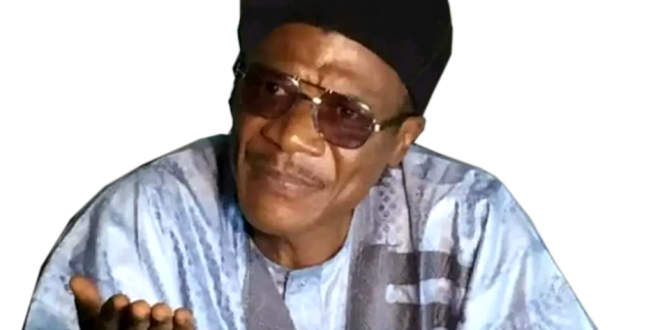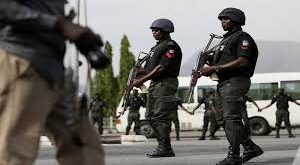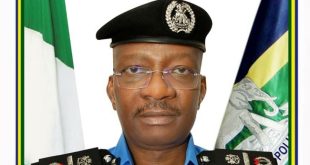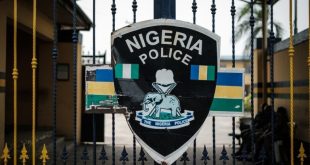Amidst the controversy and crisis surrounding the reinstatement of Lamido Sanusi as the Emir of Kano State, the Spokesperson of the Northern Elders Forum, Abdul-Azeez Suleiman, speaks with Olumide Olusegun. In this exclusive interview, Suleiman discusses the involvement of politicians in the crisis, the repeal of the Emirate law, and President Tinubu’s performance after one year in office, among other pressing issues.
The unfolding Kano State emirate crisis and the subsequent installment of Emir Sanusi as the unrest in the state. What is your take on the matter?
It is unfortunate that the emirate crisis in Kano has brought about a significant level of uncertainty in the state. The removal of Emir Aminu Ado Bayero from his position and subsequent installment of Emir Lamido Sanusi II have sparked controversy and raised concerns among the people. The unfolding crisis has shed light on the deep-rooted tensions and power struggles within the traditional leadership of the state. In my opinion, the crisis is a reflection of the larger issues of governance, transparency, and accountability in Nigeria. The traditional institution, which is meant to be a symbol of unity and tradition, has been caught up in the murky waters of politics and power struggles. The government and traditional leaders need to work towards resolving the crisis peacefully and transparently. The people of Kano State deserve to have a traditional leadership that is accountable, fair, and representative of their interests. The situation requires immediate attention and resolution. It is important for all parties involved to put the interests of the people first and work towards a peaceful and inclusive solution to the crisis.
Do you think the governor’s decision to reinstate Sanusi, sign the bill repealing the State Emirate Council Law 2019 that gave the state five emirate councils and depose the incumbent Emirs was right and justified?
As a non-legal professional, it would be inappropriate for me to comment on the specific legal matters surrounding the governor’s decision to reinstate Sanusi and repeal the State Emirate Council Law 2019. These are complex issues that are currently pending in court, and it would be imprudent for me to offer an opinion on a matter that I do not have the expertise to fully understand. However, what can be said is that the governor’s decision to take these actions was likely based on considerations that he deemed to be in the interest of the state. It is important for leaders to make difficult decisions in challenging situations, even if those decisions are controversial or subject to legal scrutiny. Ultimately, the governor must be held accountable for his actions, and it will be up to the courts to determine the legality and justification of his decisions. While it is not within my purview to pass judgement on the governor’s actions, I trust that the legal process will impartially evaluate the circumstances. It is essential that these matters be resolved in a fair and transparent manner, in order to uphold the rule of law and ensure justice for all parties involved.
The former governor of the Kano State, Abdullahi Ganduje earlier sacked Sanusi and is now reinstalled by another governor and perhaps another governor may again come up and sack Sanusi. Don’t you think this act by both governors may turn the traditional institution into ridicule?
The recent reinstatement of Emir Sunusi after he was deposed by the former governor of Kano State, Ganduje, has raised concerns about the stability and integrity of the traditional institution in the state. The decision to sack and then reappoint Sanusi, the former Emir of Kano, by different governors highlights the political interference in the traditional institution. Traditional institutions play a significant role in preserving the cultural heritage and maintaining peace and order within communities. However, when these institutions become subject to political interference, their credibility and effectiveness are put at risk. The case of Emir Sanusi’s removal and subsequent reinstatement sheds light on the power struggles and manipulation that plague traditional institutions in Nigeria. Emir Sunusi’s removal by the former governor of Kano State, Ganduje, was widely seen as a politically motivated move to silence dissent and consolidate power. The reinstatement of Emir Sunusi by the current governor also raises questions about the stability of the traditional institution and the extent of political influence within it. The constant back and forth in the leadership of the traditional institution can undermine its authority and credibility. It can also create a sense of instability and uncertainty among the people of Kano. The traditional institution should be respected and protected from political interference to maintain its relevance and effectiveness in society. It is important for governors to uphold the dignity and independence of traditional leaders and make decisions that are in the best interest of the people they serve. The traditional institution plays a crucial role in preserving the cultural heritage and values of the people and should not be subjected to political games. The actions of the governors in sacking and reappointing Sanusi may indeed turn the traditional institution into ridicule.
Some people blamed the President and the state Governor of worsening the crisis in Kano State. What is your take on this?
In my opinion, while the President and the state Governor certainly have a role to play in resolving the crisis, it is unfair to place the entire blame on them. The emirate crisis is a complex issue with deep-rooted historical and socio-political implications that cannot be easily resolved by top-down interventions alone. The emirate crisis in Kano dates back to the amendment of the Emirate law in 2019, which led to the decentralisation of the traditional Emirate system in the state. This decision resulted in the division of the Kano Emirate into smaller emirates, a move that was met with criticism and backlash from many quarters. The traditional institution in Kano has always been a potent force in shaping political discourse and influence. The decision to amend the Emirate law can be seen as an attempt to reduce the power and influence of the traditional Emirate system in the state. It is crucial for all parties involved to engage in meaningful dialogue and negotiation to find a lasting solution to the crisis. This requires a collaborative effort from all stakeholders, including traditional leaders, community leaders, and government officials at all levels. While the President and the state Governor can certainly provide guidance and support, it is ultimately up to the people of Kano State to come together and work towards a peaceful resolution.
On May 29, President Bola Tinubu became one year in office. How would you describe the performance of his administration?
President Bola Tinubu has completed one year in office, and his administration’s performance has been subject to analysis and scrutiny. The Northern Elders Forum is set to release a comprehensive assessment of his administration’s performance, but as of now, I cannot comment on it.
The hardship in the country has continued to worsen than what was obtainable in the past and many have blamed the President for inability to manage the nation’s economy. What is your take on this?
The hardship in the country has indeed continued to worsen over the years, and many people have pointed fingers at the President for his inability to manage the nation’s economy. While it is true that the President plays a significant role in shaping economic policies and ensuring stability, it is essential to consider other factors that contribute to the prevailing hardship. One major factor that cannot be overlooked is the global economic situation. In today’s interconnected world, events happening in one country can have a ripple effect on others. The global economic downturn, trade wars, fluctuations in commodity prices, and other external factors have impacted the economy of our country. These external factors are beyond the control of any single individual, including the President. Furthermore, corruption, mismanagement, and lack of accountability at various levels of government have also played a significant role in exacerbating the hardship in the country. These issues have weakened institutions, stifled economic growth, and hindered the development of critical infrastructure. While the President bears responsibility for the state of the economy, it is essential to recognize that economic management requires the role of other actors in driving economic growth and stability. It is essential to look beyond individual responsibility and consider the complex web of factors that contribute to the current hardship. Addressing these issues will require a concerted effort from all stakeholders to create a more inclusive and sustainable economic system.
What is your take on the insecurity rate of the country and the performance of the government in managing the situation as some part of the North is still under insurgency?
The insecurity rate in the country is a major concern that needs urgent attention. The ongoing insurgency in some parts of the North has led to loss of lives, displacement of people, and destruction of properties. The government’s performance in managing the situation has been mixed, with some progress made but still a long way to go. The government has deployed security forces to the affected areas, launched military offensives against the insurgents, and implemented various counter-insurgency measures. However, the effectiveness of these efforts has been limited, as the insurgents continue to carry out attacks and hold onto their strongholds. There is a need for a comprehensive approach to address the root causes of the insurgency, including poverty, unemployment, and lack of access to quality education. The government should also engage communities to explore possible solutions and end the cycle of violence. Furthermore, the government needs to improve intelligence gathering, enhance cooperation among security agencies, and ensure the welfare of the troops fighting on the frontlines. There should also be more transparency and accountability in the management of funds allocated for security operations.
There are increasing rate of Kidnapping for ransom, why do you think it is difficult for the police, military, and other security agencies to end this menace?
Kidnapping for ransom has become a growing concern in many parts of the world, not only Nigeria. Despite efforts by police, military, and other security agencies to combat this menace, it continues to persist. There are several reasons why it is difficult for these agencies to end kidnapping for ransom. Firstly, the perpetrators of kidnapping for ransom are often well-organised criminal networks with sophisticated operations and well-established networks. They often have insider information and use technology to outsmart security agencies, making it difficult for law enforcement to track them down and apprehend them. Secondly, corruption within security agencies also hinders efforts to combat kidnapping for ransom. Some security officials may be complicit in the crime, either through direct involvement or by turning a blind eye to the activities of criminal networks. This lack of integrity within the security forces weakens their ability to effectively address the issue. Moreover, the lack of adequate resources, training, and equipment for security agencies also impede their efforts to combat kidnapping for ransom effectively. Without the necessary resources, such as vehicles, communication devices, and surveillance equipment, security agencies struggle to gather intelligence and carry out operations to rescue kidnapped victims and apprehend perpetrators. Additionally, the legal system in some countries including Nigeria may be inadequate or outdated, making it challenging for security agencies to prosecute and convict individuals involved in kidnapping for ransom. Delays in the justice system, corruption within the judiciary, and loopholes in existing laws allow perpetrators to evade punishment and continue their criminal activities with impunity.
What is your take on restructuring and the clamour for a breakaway by some parts of the country?
The issue of restructuring and the clamour for breakaway by some parts of the country is a highly debated topic in Nigeria. Advocates for restructuring argue that it is necessary to address the disparities in power and resource distribution among different regions of the country. They believe that devolving more power to regional governments would help to promote development and improve governance. On the other hand, those calling for breakaway believe that the current political structure has failed to address the needs and aspirations of their people. They feel marginalised and neglected by the central government and see secession as the only way to achieve true independence and self-determination. As a neutral observer, I believe that while restructuring may be necessary to address some of the existing challenges in the country, breakaway is not the ideal solution. It is important to remember that Nigeria is a diverse country with different ethnic groups and cultures, and breaking away would only lead to further division and instability. Instead, I think that a combination of dialogue, compromise, and inclusivity is key to finding a lasting solution to the current political crisis. It is important for all stakeholders to come together and discuss how to move forward in a way that benefits all Nigerians, regardless of their ethnic or regional background.
The National Assembly has passed the bill for the usage of the old national anthem ‘Nigeria we hail thee’ but some have criticized them that they should concentrate on bigger problems confronting the nation. What is your take on this?
In my opinion, while I acknowledge the importance of unity and pride in our national identity, I believe that the National Assembly should prioritise addressing the larger problems confronting Nigeria. Issues such as insecurity, corruption, poverty, and unemployment are critical challenges that require urgent attention and decisive action. It is essential for our leaders to focus on policies and legislation that will have a tangible impact on the lives of ordinary Nigerians. By focusing on symbolic gestures like changing the national anthem, they run the risk of distracting themselves from the real issues that need to be addressed. While I understand the sentiment behind the decision to pass a bill for the old national anthem.
 National Telescope national telescope newspaper
National Telescope national telescope newspaper




